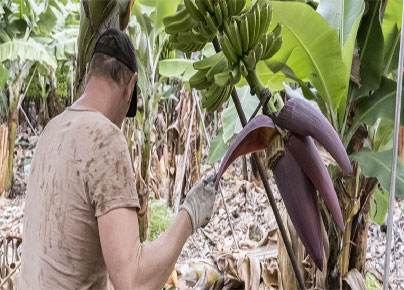Consequences of the Destruction of Plátano de Canarias
2025-03-21

Competition from Latin American and African bananas makes it challenging for many farmers in the Canary Islands to sell their products. This leads to a practice known as "pica," which refers to removing surplus bananas. Although destroying bananas is now illegal, Sergio Cáceres of the Association of Canary Islands Banana Producers' Organisations (ASPROCAN) says the term persists.
Instead of "destruction," ASPROCAN prefers "non-using," which involves directing unusable bananas to charities, food banks, and livestock feed. While "pica" is EU-approved to manage overproduction, it remains controversial.
Javier Guzmán from Food Justice argues that addressing these issues requires political intervention to end the systematic destruction of bananas.
Despite regulations, some producers claim that many bananas remain in the trash. One company affected by overproduction is S.A.T. Fast, which explains that fluctuating banana yields make regulation difficult and lead to price drops that prompt "picas."
ASPROCAN oversees the sector, ensuring that crisis measures protect farmers from severe economic loss. However, the practice of "pica" faces criticism, particularly from groups like the Platform for a Fair and Authentic Price for Canary Islands Bananas, which argues that it disproportionately benefits larger producers at the expense of small farmers.
Subsidies and aid ultimately support the banana industry.
After the destruction of 6.000 tons of bananas last summer, the IU-Sumar political group raised concerns about the contradictions in government support for farmers while allowing this waste Chávez from S.A.T.
Fast notes that the kilos withdrawn still appear in farmers' production histories, enabling them to collect subsidies. Thus, according to Guzmán, it is these subsidies, not "pica," that sustain the Canary Islands banana sector.









